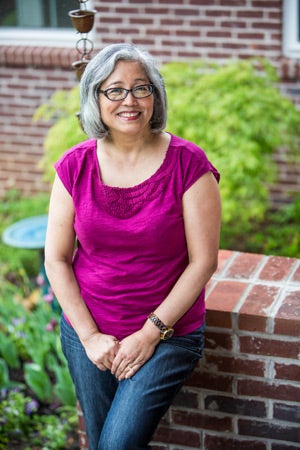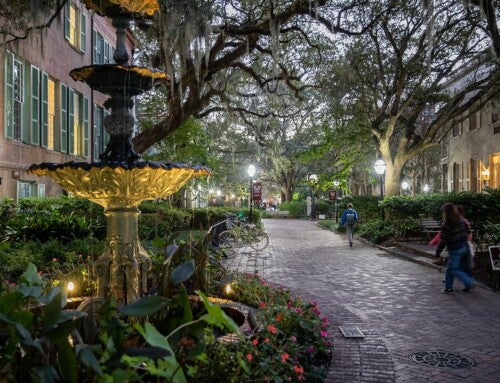It’s that small moment between dawn and day, dusk and dark. It’s the mosquitoes swarming, the heron hunting, the frogs chirping. It’s the subtle rustle picking up in the trees’ leaves. The precise cast in that secluded spot. The slightest flick of the wrist, the faintest flutter of the fly.
Every fisherman knows it’s the small things that make the difference. And Chris Peralta Thompson ’77 is no different.
With a father in the U.S. Navy and a long line of fishermen in the family, Thompson and her three siblings grew up around the water. Every Saturday at 5 a.m., the patriarch, a Philippines native, would wake his children up to go fishing for pompano in the Gulf. For him, it was a way to feed his family. But for Thompson, it was the spark that has fueled her ever since.
“That’s how I experienced the natural world growing up – that’s why I love the outdoors,” says the regional director of external affairs for the Tennessee Department of Environment and Conservation, who formerly served on the Board of Directors for the National Wildlife Federation and was the first female president of the S.C. Wildlife Federation.
Of course, you don’t get that far on just love for the outdoors. That’s just what got her hooked. But there were many, many other small things that bit and took. Like Chip Biernbaum’s ecology course her junior year at the College.
“That class changed everything for me,” says Thompson, a first-generation college student who had hitherto set her sights on going on to med school. “I knew from the first week of that class that I wanted to work protecting the environment.”
And so the biology major got her master’s in environmental engineering at Clemson and went on to work as an environmental engineer at DuPont, an environmental manager at Westinghouse and a customer care manager at IssueTrak.
“I’m an organization groupie,” she laughs. “I love to help organizations be more effective. It’s fascinating to work with people who have different needs, helping them coordinate their efforts, build bridges and make the most efficient use of resources.”
Again, Thompson notes, it’s the small stuff.
“All the individual parts have to work together in an organization. It’s about valuing individuals and empowering them to contribute their best.”
But it’s Thompson’s work with nonprofit groups like NWF, the Virginia Conservation Network, Wetlands Watch and the SCWF that she finds most satisfying.
“I think my most gratifying work has been the stuff I wasn’t paid for. That kind of work keeps you grounded. Like in a lot of relationships, you get even more back than what you give,” says Thompson, who began her service at SCWF as a volunteer and eventually received the prestigious Bartow Culp Award for her leadership there. The NWF recognized her as someone who could contribute on the national level, and, as a board member there for nine years, she served on several committees, including the organization’s first audit committee. But it was the experiences she had – like restoring a New Orleans community park shortly after Hurricane Katrina and hearing Al Gore present the case for global warming, all in one weekend – that meant so much.
“These are the things that help re-energize you,” she says. “When you’re dealing with big, hairy issues like climate change, it’s important to keep hope on the table. You can’t lose hope. That’s why small changes are so important. Huge changes don’t happen overnight. A lot depends on incremental change that happens at the individual level.”
And that’s why Thompson and her husband, Steve Thompson ’77, have made sustainable renovations to three homes and created five outdoor NWF-certified Backyard Habitats over the years. Thompson loves the restful feeling she gets in the backyard habitat she’s created in Knoxville, but there’s one relatively inexpensive change that she’s especially proud of: The radiant barrier they installed in their home has helped cut their electric bill by 30 percent!
“That’s made a huge difference!”
The small things always do.
– Alicia Lutz ’98





